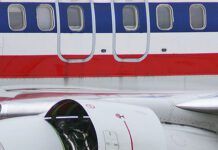More than 90% percent of certification work on new aircraft and aircraft parts is outsourced by the FAA to the manufacturers themselves, according to a GAO report. Similar to the FAA delegation of airman certification authority to Designated Pilot Examiners, the FAA has been authorizing most certification work to be performed by employees of the manufacturers themselves through the Organization Designation Authorization (ODA) program.
Industry representatives approve and asked for more. “We have seen more delegation, and we thank [the FAA] for that,” John Hamilton, VP Engineering for Boeing Commercial Airplanes, told the House Subcommittee on Aviation on Wednesday. Michael Thacker, Senior Vice President for Certification of Textron Aviation, went further in asking the FAA for more delegation: “Overall, the goal of [Aircraft Certification Service] transformation must be to ensure that FAA lowers unnecessary barriers to incorporating safety technologies by fully delegating and utilizing ODAs.” In some cases, the FAA delegates a certification test, but requests to observe the testing as it is performed by the manufacturer. Boeing’s Hamilton told Congress that the FAA’s observation of this certification work creates delays in the certification process.
Boeing was fined $12 million through late 2015 to settle FAA investigations arising from the falsification of certification and repair paperwork, the Seattle Times reported earlier this week. In one case, a mechanic told FAA investigators that the mechanic did not use required inspection tools and had been entering false data into aircraft inspection records for at least seven years, the Seattle Times article reports.
Concerns have been raised for years about the FAA’s level of involvement and technical capacity to be involved in the certification of new aircraft. Following a series of fires that started in the Boeing 787’s lithium batteries, an NTSB report said that the FAA provided insufficient guidance for manufacturers and FAA certification engineers on how to certify these batteries. According to the NTSB, FAA certification staff “did not recognize that cascading thermal runaway of the battery could occur as a result of a cell internal short circuit, [and] as a result, FAA certification engineers did not require a thermal runaway test as part of the compliance demonstration.” The certification plan for the aircraft, including required compliance demonstrations, was written by Boeing and approved by the FAA.


































